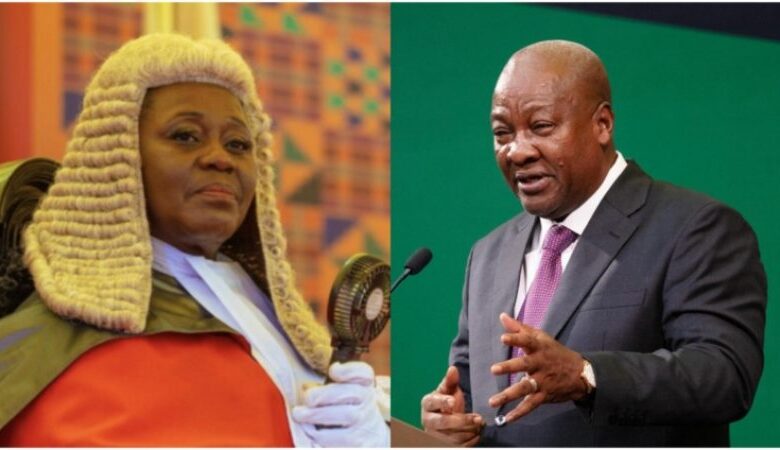
The judiciary in Ghana, as established by the 1992 Constitution and supported by the Judicial Service of Ghana (JSG), plays a critical role in interpreting and enforcing the law, administering justice, and safeguarding individual rights. Its independence is a cornerstone of Ghana’s democratic framework, ensuring the fair and impartial application of the law through a structured court system comprising the Supreme Court, Court of Appeal, High Court, and other lower courts.
1. The Constitution and the Judiciary
Ghana’s Constitution designates the judiciary as an independent branch of government. It vests judicial power in the courts, tasking them with interpreting laws—including the Constitution itself—and resolving disputes in accordance with legal principles. This institutional separation is fundamental to the rule of law and democratic governance.
2. The Judicial Service of Ghana (JSG)
The JSG serves as the administrative backbone of the judiciary. It oversees the daily operations of all courts and provides critical support to ensure efficient judicial functioning. Its vision, “Equal Access to Quality Justice,” reflects a national commitment to justice that is accessible, fair, and impartial for all Ghanaians.
3. Structure of the Judiciary
Ghana’s judiciary is divided into two main categories:
Superior Courts: These include the Supreme Court, Court of Appeal, High Court, and Regional Tribunals.
Lower Courts: Established by Parliament, these include Circuit Courts, District Courts, and other local courts.
Each level of court plays a unique role in ensuring justice is delivered effectively and lawfully.
4. Core Functions of the Judiciary
Interpreting and Applying the Law: Courts clarify and apply legal principles in specific cases.
Administering Justice: The judiciary hears cases, resolves disputes, and enforces legal remedies.
Protecting Rights: Courts serve as guardians of constitutional and legal rights, checking the power of the state.
Appellate Review: Higher courts ensure the integrity of legal decisions by reviewing the rulings of lower courts.
5. Judicial Independence
An independent judiciary is essential for fair governance. The Constitution guarantees this independence and prohibits interference from the executive or legislative branches. Safeguards—including security of tenure and financial autonomy—are built into the system to prevent undue influence.
6. Relationship with the Public
The judiciary exists to serve the people. The JSG’s vision underscores a commitment to justice that is equitable and transparent. The courts not only resolve disputes but also help maintain public confidence in democratic governance by ensuring that laws are applied fairly to all.
Suspension of Chief Justice Gertrude Torkornoo: A Pivotal Moment
On April 22, 2025, President John Dramani Mahama suspended Chief Justice Gertrude Torkornoo after receiving three undisclosed petitions against her. This marked the first suspension of a Chief Justice under the 1992 Constitution. Following consultations with the Council of State, the President determined that a prima facie case had been established, thereby triggering the formation of a committee to investigate the allegations in accordance with Article 146 of the Constitution.
Legal and Constitutional Implications
Legal scholars, including Kwaku Ansa-Asare, assert that the President is constitutionally required to suspend the Chief Justice upon such a finding and the establishment of an investigative committee. This interpretation emphasizes the need to follow constitutional procedures strictly to preserve the legitimacy and integrity of the judicial process.
Concerns Over Judicial Independence and Due Process
The Ghana Bar Association (GBA) expressed serious concern, calling for strict adherence to due process and constitutional safeguards. It warned against any perception of political interference, which could undermine the judiciary’s independence.
Chief Justice Torkornoo herself raised procedural objections, noting that she was neither informed of the petitions nor given an opportunity to respond before her suspension. She emphasized that due process, as mandated by Article 146, requires the accused to be notified and allowed to respond before any further action is taken.
Political Reactions and Public Sentiment
The opposition New Patriotic Party (NPP) condemned the suspension as politically driven and unconstitutional. They accused the executive of overreach and called for mass action and reinstatement of the Chief Justice.
These developments unfold against a backdrop of growing public skepticism toward the judiciary. According to a 2021–2023 Afrobarometer survey, 62% of Ghanaians reported little or no trust in the courts, with 97% perceiving judges as corrupt. Allegations of political bias in high-profile cases have further strained public confidence.
Conclusion: A Critical Test for Ghana’s Democracy
The suspension of Chief Justice Torkornoo is a defining moment for Ghana’s democratic institutions. It underscores the urgent need to uphold constitutional procedures, preserve judicial independence, and restore public trust in the legal system. As the investigation proceeds, it is vital that the process remains transparent, impartial, and grounded in the principles of democracy and the rule of law.




